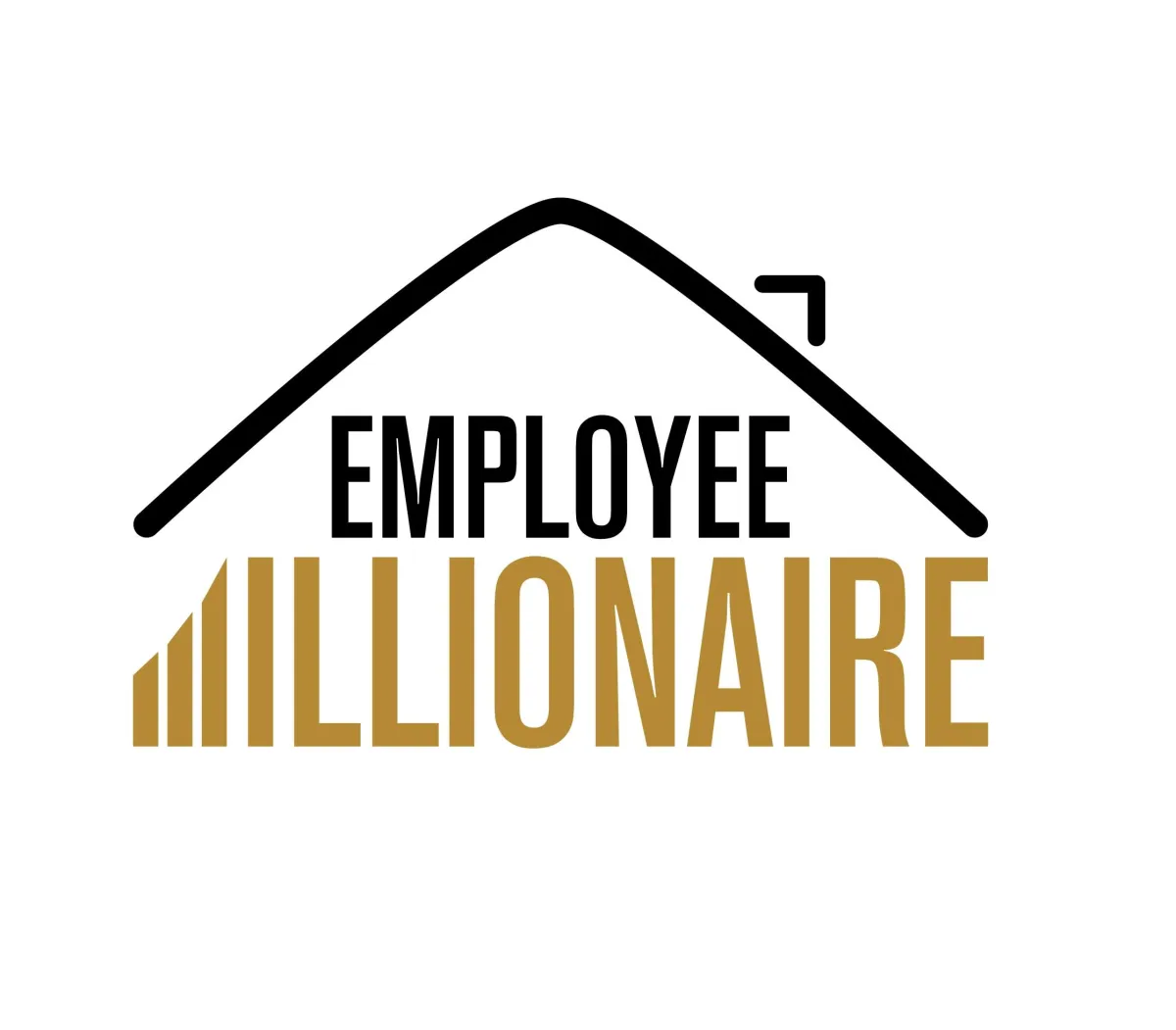

4 Important Questions That Will Transform Your Life
According to Socrates, "An unexamined life is not worth living." He realized that to live a complete life, we must examine it truthfully. While some might question the worthlessness of an unexamined life, others agree that if we don't make time to examine our motives, it may catch up to us. But on the other end of the spectrum, you want to avoid getting caught in a rigorous examination of life and become entangled with it.
The thing is, most of us are dictated by our unconscious desires instead of making conscious choices. We have a habit of reacting instead of responding to what is taking place in our lives. It is only when a situation does not play out as expected that we evaluate our choices. This is not a good recipe for living because reacting to outside events is not empowering since you are dragged by your circumstances instead of taking life into your own hands.
The bestselling book, The 4 Stages of Building Wealth, encourages readers to challenge their beliefs to realize their potential. This process is neither easy nor pleasant, but it is a necessary step to experience intentional results in your life. Although not all the choices you make will result in positive outcomes, the process itself will get you closer and closer to a more fulfilled life and an empowering mindset.
Over the coming paragraphs are presented four fundamental questions to ponder on. You need to be honest with yourself on the first two questions and realistic with your vision of your future on the other two questions. You should journal your thoughts on the questions below and revisit them every year to see if you have more clarity on things you want out of life. This process will make you become your mentor and coach. This is a process I use when coaching new clients to help them map out their vision board and put together a plan to achieve the life they want.

1. Where Am I Now?
When you're introducing yourself at a social event or corporate training, what do you say? I bet you will recite your past, ethnicity, what you do for a living or your marital status. While these labels define us, what happens if you lose your job? What is the label used to define you then?
Maybe you’re just starting your career. Maybe you started your career years ago. You might have a modest amount of income that barely covers your expenses. You might have debt payments and bills that eat up all your income and leave you with nothing to enjoy the simple things in life. Or you might have climbed the corporate ladder with a decent income but bigger ambitions. Wherever you fall on that spectrum, you have a certain income right now, probably from your job. You might feel uncomfortable that you work quite hard but get left with little money and time.
Every one of us has ambitions for a better quality of life, a better career, and an abundant life. The thing is, we often need to examine the current state of our finances and careers before we fall into the trap of imagining a better life. You want to reach a destination using Google Maps without a starting point.
Before you can start building wealth, you need to have a very clear picture of where you are financially right now. To determine this, you must understand some basic financial calculations and assessments. It would be best if you had a clear picture of how your cash is flowing and of your current net worth. This article is not meant to be a crash course on personal finance, but you can get all the resources and the step-by-step guide on how to do it with your free copy of The 4 Stages of Building Wealth.
The more you start making relations between your cash flow and your net worth, the more questions you start asking yourself about your financial health. This leads you to ponder the next question: Why am I there?

2. Why Am I There?
This important question needs to be answered to have a clear understanding of what brought you to your current financial situation. To answer this question, you will need to examine:
Your sources of income: do you depend on only a paycheck from your job, or do you earn other income streams from a cash-flowing side gig or income-producing assets?
Your spending habits: where do you spend most of your money? on the essentials for survival (such as rent, mortgage, taxes, transportation, food, and clothing) or discretionary nice-to-have things?
Your assets: do you own non-income-producing assets that don't pay you any income, make your money sit idle, and even make you incur taxes on them? Or do you own a portfolio of income-producing assets that feed your bank accounts irrespective of whether you work?
Your liabilities: the type of debt you have tells a lot about your spending habits. Do you owe a lot of bad debt (such as personal loan, car loan, credit card loan, etc.), which has been used to purchase things or services that depreciate over time or have already lost value after consumption? Do you carry good debt, which was used to purchase income-producing assets that pay you passive income?
How wealthy you are: Did you ever ask yourself how many months you can survive if you ever lose your income from your job? If you raised an eyebrow, I'd like to be clear. Wealth is not measured by the number of dollars you have in your name. Wealth measures the number of days you can survive without working.
Related: How Can Personal Finance Best Be Managed To Build Generational Wealth
This step is a prerequisite for any person seeking financial freedom. It is a preamble for setting new goals (Where Do I Want to Be?) and creating a strategy to reach them (How Do I Get There?). If you don’t know where you are and why you are where you are, you can’t expect to get where you want to go.

3. Where Do I Want to Be?
Have you ever considered your "big why" or major definite purpose? This is the one goal that is most important to you. It is usually the one goal that will help you to achieve more of your other goals than anything else you can accomplish. From my own experience, your major definite purpose goes beyond financial goals. Your major purpose or goal is usually centered on personal matters, like home and family, health and fitness, personal development and education, social life and relationships, spiritual development, and life contribution. You will realize that your goals related to work, career, and finances will be the enablers to achieve your higher purpose.
At this stage, you might even start asking yourself powerful questions about what your life might look like if you had all the money in the world. What kind of career would you be pursuing? How would you spend your leisure time? What kind of passion would you be pursuing? How would you give back to your family, your friends, your community, your colleagues, your business associates, and your religious affiliates?
Once you have clarity on the above, you can start setting your financial objectives. You can only set objectives if you can see your current situation and understand why you are where you are. As James Burke eloquently puts it: “You can only know where you’re going if you know where you’ve been.”
You could be asking yourself about the time horizon of your objectives; the recommended time horizon is five to ten years. In this very well-researched book - The Top 10 Distinctions Between Millionaires and the Middle Class - author Keith Cameron Smith found that poor people plan at best for weeks, middle-class people plan for months, whereas rich people plan for years.
A powerful way to look at your goals is through the famous SMART model. SMART stands for the different criteria of a goal, which are Specific, Measurable, Achievable, Realistic, and Time-bound.

4. How to Get There?
Once you've identified where you want to be, you need a plan and a process to get you there.
Why do you need a process?
Put, a process is a set of defined tasks needed to complete a given activity, including who is responsible for completing each step, when, and how they do so. Without having a clearly defined process, your wealth-building journey can’t grow to its full potential. Two reasons why a process is so important for success are efficiency and scalability. Having a documented process that you can use as a tool saves time, energy, and resources. Following a proven process will prevent you from losing the time and money spent trying to reinvent the wheel. Moreover, a system allows you to replicate any task repeatedly with predictable results.

Take It One Step At A Time
I think you should go through the four questions in the order presented in this article. But try to do them all at different times right out of the gate. Ease into them. If you take on too many new actions simultaneously, it will be harder to get them all on track. You’ll probably get frustrated. So please start with the first question in this article, get it up and running, smooth it out, learn it well, and then go on to another. Take your time. You’ll get to them all eventually.
Knowing where to start is important. Which step should you pick first? Think about what makes sense for you. Do you understand the numbers in your financial statement? Think about where you’re likely to get the fastest results. Where do you think the most low-hanging fruit is for your personal finances? How are you most likely going to reach your financial objectives? Where will you get the greatest ROI? If you’re still not sure after you’ve thought through these questions, we recommend starting with question one first. Once you begin building your personal financial statement and analyzing the numbers, you’ll gain confidence, and soon, you’ll be implementing the more advanced strategies, too.
We’ve helped over 30,000 students implement these systems and, along the way, have been perfecting every step of the process. Our training program, The 4 Pillars of Generational Wealth, provides step-by-step instruction on the entire system, as well as 1-on-1 support to ensure that our students succeed. You can check out this course at www.employeemillionaire.com/fourpillarscourse.
For more serious students looking for one-on-one guidance and mentoring on the entire process, we have been working with students around the globe through our “inner circle” coaching. After helping so many students implement this system, we’ve found a few keys to successfully implementing and managing the process so that you get the results you’re after — a steady and dependable residual income from assets that grow your wealth! You can sign up for a complimentary strategy session at www.employeemillionaire.com/book-call.

Want to Talk to A Real Estate Coach
Let's set up a time to talk and discuss what your BEST PLAN would be to GET YOUR PERSONAL FINANCES IN ORDER and INVEST IN REAL ESTATE
